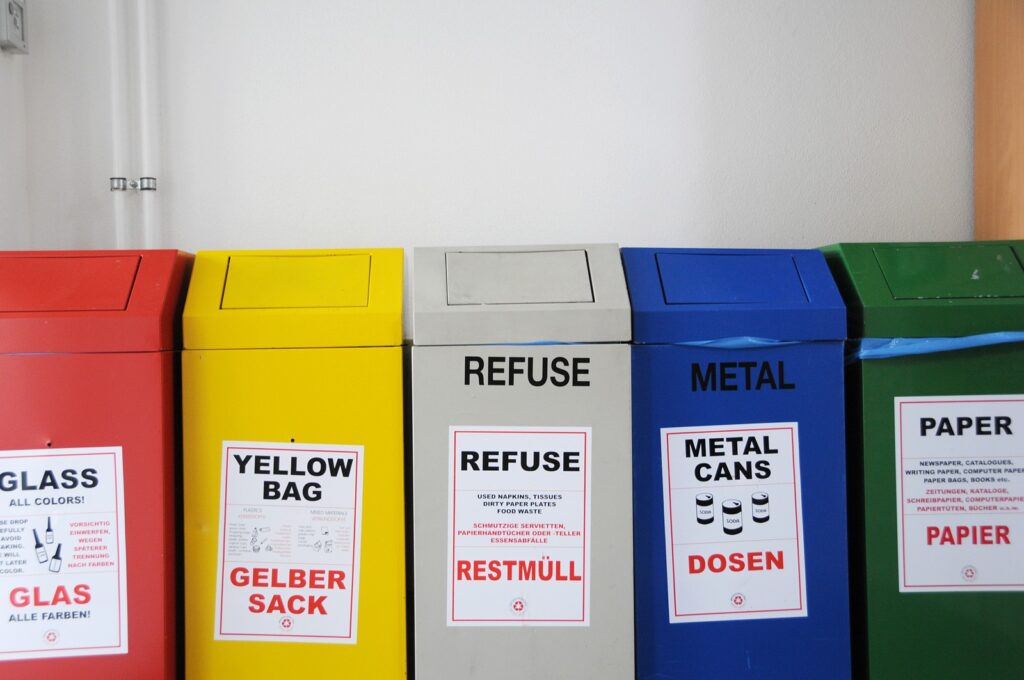Your Ultimate Guide to Mastering German Recycling Rules: From Novice to Pro
Germany's exemplary recycling system can initially seem as complex as the country's renowned Autobahn. With its dual focus on waste reduction and resource management, the system is praiseworthy but often esoteric to those unacquainted. Whether you're a newcomer or a long-term resident, understanding the rules is essential. This comprehensive guide will unravel the mysteries surrounding Germany's recycling system, breathe clarity into your responsibility as a consumer, and highlight how you can effortlessly navigate this eco-conscious pathway.

Why Germany is a Recycling Powerhouse
What makes Germany's recycling system the envy of the world? The nation's pledge to sustainability and ecological stewardship is unmatched. According to Statista, Germany boasts the highest recycling rate in Europe, standing strong at 66.1%. Spearheaded by the Green Dot System, these efforts are a testament to Germany's environmental commitment.
The Color-Coded Quest: Deciphering Germany's Recycling Bins
When it comes to recycling in Germany, not all bins are created equal. The rainbow of containers may appear daunting at first glance. Let's simplify the landscape:
-
Yellow Bin (Gelber Sack): Hold on to this essential German tool because it's exclusively for packaging, plastic, and metallized items.
- Common FAQs: What can I put in the yellow bin?
- Answer: Cardboard Tetra Paks, aluminum cans, yogurt containers.
- Common FAQs: What can I put in the yellow bin?
-
Blue Bin (Blaue Tonne): Paper and cardboard materials call the blue bin their home.
- Quick Tip: Flat, clean, and dry is the preferred mantra here.
-
Brown Bin (Braune Tonne): Dedicated to organic waste. That includes your vegetable peels and coffee grounds.
- Power Point: Biodegradable plastic isn't allowed—stick to nature.
-
Black (or Gray) Bin (Schwarze/Graue Tonne): Non-recyclable refuse.
- Must-Know Fact: If it's not a fit for the other bins, check here.
Germany's Secret Weapon: The "Pfand" System
If anything strikes a chord about German recycling, it's the beloved bottle return system - "Pfand." Here's how it works:
- Quick Fact: Each year, over 95% of German beverage bottles are returned via Pfand.
- Actionable Insight: Utilize reverse vending machines at grocery stores to return your used bottles and claim your deposit.
Your DIY Recycling Success Story: Practical Tips
- Combatting Confusion: Keep an illustrated guide in your kitchen to categorize waste easily.
- Community Engagement: Regularly attend neighborhood recycling workshops to stay updated and informed.
- Adopting Modern Practices: Embrace digital apps like "Müll-Pilot" to guide you in real-time.
Understanding the "Recycling Tax" in Germany
Contrary to misbelief, there's no official recycling tax. However, being eco-compliant does incur hidden costs.
- The "Eco-Contribution": Integrated into product pricing. Contributing to future waste handling means making an eco-friendly purchase analogous to an invisible tax rebate.
The Shared Spirit: Engaging with the Community
- Emotive Story: Meet Martina, a Berlin resident who turned her passion for recycling into a celebrated neighborhood initiative.
- Solution-Based: Discover how communal efforts amplify recycling effectiveness.
Conclusion: A Commitment Beyond Compliance
Mastering Germany's sophisticated recycling system transitions you from being a contributor to becoming an environmentally conscientious steward. The nuances may seem daunting, but embracing these protocols aligns you with a society that's leading from the frontlines in sustainability. Recycling isn't merely a routine—it's a resounding promise to protect our planet's future.
Ready to Make a Difference? Explore local recycling programs, understand the intricacies, and implement them. Your journey starts here, creating ripples of change in Germany and beyond.















